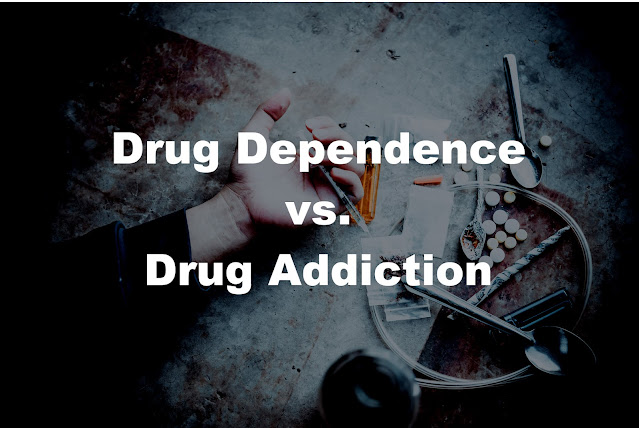There are a variety of terms used these days to describe men and women whom are addicted to substance in one form or another. Such terms consist of; Drug Addiction, Substance Abuse, Chemical Dependency and Alcoholism. A common question among those seeking treatment for themselves or a loved on is, "What is the difference between drug addiction and chemical dependency?"
The truth of the matter is that all 4 of these descriptive terms can be used interchangeably. The main difference, however, is the context within which they are used, hence altering their perceived meaning, while in actual fact, the same phenomenon are being described. For instance, when you think of a skid row junkie it is more common to use the term "drug addict" as opposed to a physician addicted to pain killers, in which case it's common to hear the term "chemically dependent" or substance abuser. Similarly, the term "drunk" or "alcoholic" may be heard in twelve step fellowship meetings, whereas an addiction medicine physician may use the diagnostic classification of "chemically dependent to alcohol with physiological dependence". Describing the same set of symptoms, but applied in different contexts.
In general, the terms chemical dependency and substance abuse tend to describe a more higher functioning class of addicts; people who often times hold white collar or executive positions in society and are able to somewhat manage their lives and have not yet progressed in their disease to having lost homes, jobs, and legal status. In contract, the drunk homeless person on the street corner will nearly always be termed a drug addict and/or alcoholic. The truth of the matter is that both are devastating scenarios; one just happens to be hidden a bit better than the other and are the same disease along a continuum of progressive path of chronic progression and demise. Use of such terms are popular lay terms and hold no scientific merit other than being descriptive of the extent of disease progression.
The treatment process for the above scenarios is largely the same for both. The fact that one person has a masters degree and the other may be a high school dropout has absolutely no bearing on the clinical therapeutic approach within the overall treatment process. Indeed, while it may be hard to tell at this point, the "alcoholic bum" living on the street corner may very well have a masters degree as well. This underscores how addiction is a disease of 'equal opportunity', affecting every demographic equally.
Thus, the difference between the terms chemical dependency and drug addiction is more than anything, a perceived difference held by those in various socioeconomic categories, rather than accurate descriptors of differentiation. At the end of the day though, the mortality rate from one to the next is, sadly, about the same. The inverse of this is also true, which is good news of hope: all that are willing, regardless of 'labels' of society, have an equal chance at full, healthy recovery!

Tidak ada komentar:
Posting Komentar